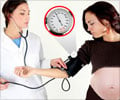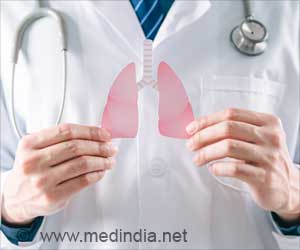A recent study has found that pregnant women with pre-eclampsia are four times more likely to have a heart attack and stroke in middle age
- Preeclampsia is a complication of pregnancy that manifests as high blood pressure and signs of liver or kidney damage that occur in women after the 20th week of pregnancy
- Pregnant women with pre-eclampsia are four times more likely to have a heart attack and three times likely to have a stroke
- More than twenty years after giving birth, the risk of heart attack or stroke remained twice as high in the pre-eclampsia group compared to those who did not have pre-eclampsia
Risk and trajectory of premature ischaemic cardiovascular disease in women with a history of pre-eclampsia: a nationwide register-based study
Go to source). “The high risk of cardiovascular disease after pre-eclampsia manifests at young ages and early after delivery. This indicates that interventions to prevent heart attacks and strokes in affected women cannot wait until middle age when they become eligible for conventional cardiovascular screening programmes,” said study author Dr. Sara Hallum of the University of Copenhagen, Denmark.
Pre-eclampsia affects 2-8% of all pregnancies worldwide (2✔ ✔Trusted Source
The global impact of pre-eclampsia and eclampsia
Go to source). Medical signs include high blood pressure and protein in the urine, which develop after 20 weeks of pregnancy or soon after delivery. Symptoms are severe headache, stomach pain, and nausea.
“Women may mistake these for ‘normal’ pregnancy symptoms and thus not seek medical help until the condition becomes severe. Most cases are mild, but pre-eclampsia may lead to serious complications for the mother and baby if not treated in time,” said Dr. Hallum.
Pre-eclampsia and Heart Disease
It is well known that pre-eclampsia predisposes women to an increased risk of cardiovascular disease later in life (3✔ ✔Trusted SourcePreeclampsia and cardiovascular disease risk assessment - Do arterial stiffness and atherosclerosis uncover increased risk ten years after delivery?
Go to source). This was the first study to look at how soon heart attacks and strokes occur after pregnancy . The study also assessed the degree of risk in various age groups.
The study used national registers to identify pregnant women in Denmark between 1978 and 2017. Women were grouped into those with one or more pregnancies complicated by pre-eclampsia and those with no pre-eclampsia. Participants were free of cardiovascular disease before pregnancy and were followed for a maximum of 39 years for heart attack and stroke. “This allowed us to evaluate exactly when cardiovascular disease occurs in women with and without pre-eclampsia, and to estimate risk in different age groups and at various durations of follow-up,” said Dr. Hallum.
The study included 1,157,666 participants. Up to 2% of those with pre-eclampsia in their first pregnancy had a heart attack or stroke within 20 years of delivery, compared with up to 1.2% of unaffected women. Differences in risk became apparent seven years after delivery.
Overall, women with pre-eclampsia were four times more likely to have a heart attack and three times more likely to have a stroke within 10 years of delivery than those without pre-eclampsia. The risk of heart attack or stroke was still twice as high in the pre-eclampsia group more than two decades after giving birth compared to unaffected women.
Relationship of Age with Pre-eclampsia and Heart Disease
When the researchers examined the risk of cardiovascular disease according to age, they found that women aged 30 to 39 years with a history of pre-eclampsia had five- and three-fold higher rates of heart attack and stroke, respectively. This was compared to those of similar age with no history of pre-eclampsia. The increased likelihood of cardiovascular disease in those with a history of pre-eclampsia persisted throughout adulthood, with women over 50 years of age still at doubled risk compared to their peers with no history of the pregnancy complication.Screening Might Help Reduce Risk of Heart Disease
“Women are often in contact with the healthcare system during and immediately after pregnancy, providing a window of opportunity to identify those at increased risk of cardiovascular disease. The number of women with previous pre-eclampsia is large, and routine follow-up could last years or even decades. Our study suggests that the women most likely to benefit from screening are those who had pre-eclampsia after age 35 and those who had it more than once. Prevention should start within a decade of delivery, for example, by treating high blood pressure and informing women about risk factors for heart disease such as smoking and inactivity,” said Dr. Hallum.References:
- Risk and trajectory of premature ischaemic cardiovascular disease in women with a history of pre-eclampsia: a nationwide register-based study - (https://pubmed.ncbi.nlm.nih.gov/36702629/)
- The global impact of pre-eclampsia and eclampsia - (https://pubmed.ncbi.nlm.nih.gov/19464502/)
- Preeclampsia and cardiovascular disease risk assessment - Do arterial stiffness and atherosclerosis uncover increased risk ten years after delivery? - (https://pubmed.ncbi.nlm.nih.gov/27155337/)
Source-Medindia
















